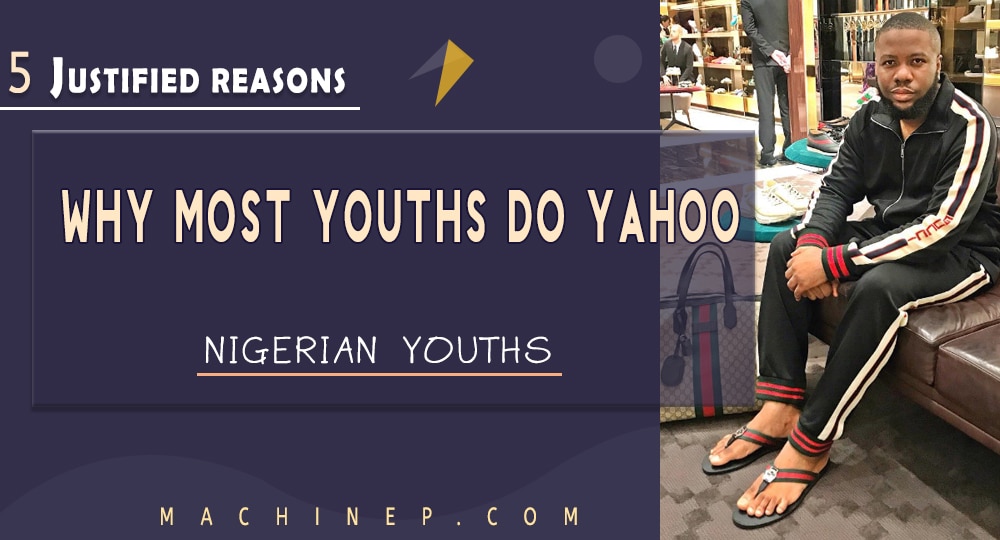Introduction to the Concept of Freedom
Freedom is as old as the existence of man. It is a general term used in everyday activity, mostly to express how free one is in his or her actions. But, freedom in ethical discourse cuts across critical and rational discourses in philosophy, of ethics, alongside many other disciplines.
This is because the notion of freedom is widely discussed, and used by every man, in different but related ways and occasions. It has been a perennial issue whether man is totally free. But, no matter how free man is, everywhere seems to be in chains – Jean-Jacques Rousseau.
Freedom comes with personal consciousness to choose to act freely in a certain way rather than the other. Thus, freedom in ethical discourse comes with choice and free will. Hence, one is free to choose or not to choose. But you may have observed that “even when one chooses not to choose, he/she ends up making a choice (choosing)”?
However, if there is no policy, there is no freedom, and if there is no freedom, there is no action. So, to deprive a man of his freewill action is to reduce him to the level of animals. The above statement by Hannals Arendt goes far to emphasize the essentials of man’s freedom as that which authenticates him as a dynamic creature different from brutes and animals.
The Concept of Freedom in Philosophy
Freedom is referred to as “self-evident truth,” and it is upon this axiomatic assumption that laws are laid down in human Communities, decisions are taken and judgments are passed.
In the history of philosophy and social thought, freedom has a specific use as a moral and a social concept. Generally, it refers either to circumstances that arise in the relations of the world today.
Freedom is likened to Rights; when one says ‘it is my right to make speeches that please me’, and when one positions that ‘I have Freedom of Speech’. In the course of this discourse, the concept of freedom will be clarified and its (freedom) essences make known as coherent as possible. Let’s discuss the different definitions of freedom.
Definition of Freedom
The various meaning of the term “freedom” centers around three major themes as we can see below;
- The first is the possibility of the subject to act as man wills to satisfy his tendencies, aspiration, etc. (Freedom of actions as opposed to constraint, servitude, etc. civil and political liberties, etc.)
- The second is the power of self-determination with no necessity in the will. If only from the pressure of nature slightly distinct from the ego (freedom of will, free will as opposed to necessity).
- The third is the fulfillment of a reasoning subject by the internal domination of reason, of superior motivations over feeling, and over inferior motivations (rational freedom).
Freedom is the faculty that man enjoys in determining himself to action and to bring its cause, after having taken consciousness of the considerations that such an action carries for life. Man is a free being within and without, beneath and above.
Freedom is man’s true self without which he ceases to be what he is, a being unto God, the image of the creator, the matter of the universe of creations, the dynamic being. For a man to achieve greatness as desired by God, the creator, man has to be free.
Freedom, according to Baptista Mundin, is “another great window for looking into the mystery of man.” With freedom, man is not only simply the master of his own acts but also of himself. He is the master of his own becoming, more precisely, of that which he will become, an honest citizen, a laborious worker, a generous woman, and an Ernest mother.
Freedom implies the dignity, excellence, and nobility of the human person, without which life for the individual is altered and for the society, total chaos and the general state of anarchy. Man’s freedom is not only a quality describing an aspect of his life but the dynamics of his being, a power giving direction and meaning to the very value that man holds the most desirable life.
Types of Freedom
There are two types of freedom. They are as follows;
- Exercise Freedom
- Specification Freedom
Note: There are many other types of freedom according to different categories. But we shall discuss the two mentioned above.
Exercise Freedom
Freedom of exercise is that between contradictory alternatives; it is the freedom of an agent to act or not to act in an absolute sense. In any situation, a man who is rational can will to act or will not to act. Man has this sort of freedom as a voluntary agent always, and here, freedom relates to the interior act of willing or not willing by the moral agent. The voluntary act and the free act, for all practical purposes, are identical.
Specification Freedom
On the other hand, freedom of specification presupposes freedom of exercise and looks further to some objects specifying the act to be done by the agent. It is the choice of this alternative rather than that or, more precisely, the choice of this means in relation to the desired end.
The free act as a choice, therefore, is concerned with means properly, not with ends as ends. To will an end as an end is not a matter of choice but a matter of simple will; an act of the will that centers precisely on the means is the act of choice. When reference is made to human freedom in a moral context, it is usually this freedom of specification that is meant.
Many philosophers have contributed to the definition of the term “freedom” from the ancient era of philosophy.
Kinds or Forms of Freedom
1. Physical Freedom
This is a man’s freedom from external constraint; that is freedom from all kinds and forms of oppressive force against man’s choice and voluntariness. This physical freedom is immunity from physical constriction.
2. Moral Freedom
This is the absence of constriction through oppressive forces of moral order such as rewards, punishments, laws, and threats; it is the power to choose and determine oneself. However, man’s freedom is the freedom of choice of moral goodness, to choose the good, and to avoid evil. Meanwhile, the fear of the aftermath of man’s actions makes him act in an opposite direction. He acts for good to receive reward and praise, but if he acts contrary to the good, he receives punishment.
3. Psychological Freedom
Psychological freedom is man’s capacity to choose to do anything when all the necessary conditions for acting are present. It is the sovereign control over the situation by which they will hold in their hands the power to make the choice fall in favour of one of the various alternative possibilities.
Psychological freedom, therefore, is the absence of pressure on the part of other human activities on our will, intellect, or passion to perform acts in a determined way “man is a social being, open to values and communication with others and as such to be free from social influence and is, therefore, to be psychologically free.
4. Political Freedom
Political freedom is the absence of any form of political pressure on man. It is the freedom of the citizens of the state to exercise their political rights uninhabited. These include the basics of political rights, the right to vote, the right to hold office, the right to participate in making political decisions, the right to associate with others of like views, and to criticize the government.
5. Social Freedom
This is the freedom from social determinism; it is the freedom of socialization and the absorption of the growth of the functions of groups, associations, and institutions having religious, social, economic, cultural, professional, and political ends which operate for the good of the states.
The examination of the various kinds of freedom clarifies to some extent what we mean by the term freedom, as that faculty which man enjoys determining himself to an action and to being its cause and author. From the ongoing; we can see that freedom touches every aspect of man’s life. In this vein, Mundin says that freedom is “an unequivocal sign of man’s physical and spiritual dimension.”
The Essence of Freedom
The proof of the existence of freedom is necessary, in the sense of its validity beyond experience or any philosophical and scientific claims against its existence. The essence of freedom explains the need for man to have or get freedom. It explains the importance of freedom to man.
First, freedom enables man to choose on which actions or activities to follow. This act of choice is one of the attributes of a human being. This is because one reason for man’s rationality is to be able to dictate the good and the bad and have the right or freedom to make a choice. This, therefore, explains man as not being a totally determined being.
Secondly, freedom allows human conformability. This is because in freedom one becomes comfortable and should be held responsible for his actions, hence the advent of the moral agent.
The comfortability here is that the moral agent is no more on determinism of something or mandatory doing something. Here, the human person exercises an act of choosing to do or not to do and at his or her own convenient time.
Thirdly, freedom enables us to participate in human activities, thus we exercise our fundamental human rights, especially in the political aspect of freedom. It also enables us to associate, socialize, and interact with other creatures in the human environment. It also puts into our consciousness the right to choose the religion of our choice and take part in its activities.
Fourthly, freedom widens our knowledge in knowing some of our rights and what is not our right in society at large. This way, freedom can be seen as a form of education for human beings. It is through it that we gained the opportunity of searching and researching for what will help in the skyrocketing of human being beings and their environment.
Conclusion
Freedom plays a significant role in the relationship between one and another. Freedom is an important concept that works with consciousness and choice.
Drawing from the above explanations, one could attest that freedom is guided, moderated, and regulated by the laws and rules set up in society, but its essences are moreover unlimited both in ethics and other disciplines.





Woooh! This is super helpful for my studies.